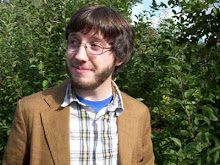Friday, August 13, 2010
Friday Films: The Kids Are All Right
Last Friday, I saw The Kids Are All Right, the breakout hit of the Sundance Film Festival. It's about a lesbian couple whose kids decide they would like to meet the sperm donor responsible for their existence. The donor is Paul (Mark Ruffalo), who owns an organic restaurant and rides a motorcycle, two facts that cause Nic (Annette Bening), the more practical of the moms, a lot of worry. The characters slowly let Paul into their lives, where his presence starts to widen cracks in the family's foundation even as he becomes closer to individual members.
At first I was worried that the movie was painting its characters and its situations a little too broadly: Ruffalo's character seems at times like a caricature, and Jules (Julianne Moore) is a hippie type without steady employment, starting up a few businesses without any success. Nic is a physician and uptight. But as the movie went along, I realized that it was probably the director's intention to set things up in familiar patterns in order to destabilize them down the line. But more on that later.
The kids are Joni, who is preparing to go to college, and Laser, her younger brother. While Laser initially wants to meet Paul, Joni has an easier time befriending him. When they tell their moms that they met their biological father, Nic and Jules decide to have him over for dinner. He hires Jules to landscape his yard. And then things get weird when Paul and Jules start sleeping together. And there's the moment where the director, Lisa Cholodenko, starts derailing things.
There are a lot of touches in the movie that I really enjoyed, and a lot of messiness-as-directorial-choice that I loved. Every time someone hooked up in the movie, there was this awkwardness about it that felt so authentic, and I thought the fact that there was a sense of unstaged awkwardness was a strong point of the movie. It's not contained to characters getting together, either: the fights, the break-ups, even the dialogue: they seem completely authentic. I've said before that I prefer the messy and honest, and that's why I liked this movie. There were some things that could have been better-developed (Laser is under-utilized, maybe--he has a subplot that doesn't do much other than establish the fact that he kind of gets along with Paul, but most of the time he just delivers moody teenager one-liners), but as a whole I think it's an accessible, appealing film.
I think this movie comes along at an interesting point, politically, because it's about gay couples raising kids, and it takes place in California, and it's being released into a polarized climate. And it's making a political statement through comedy, in a way that almost distracts you from the fact that it's making a political point. The characters aren't just mouthpieces for an opinion. I'm glad to see it's doing so well ($15 million in ticket sales so far), and I think we'll hear much more about it during Oscar season (I'm thinking Best Original Screenplay).
What stuck with me the most, though, was the fact that so many pivotal scenes took place around the dinner table. The first scene with all of the major characters together, the scene where Nic learns of Jules' affair, the scene leading up to a conflict between Nic and Paul: these are all around the table. Even the poster is an image of the characters having dinner together. I think it's the director's statement on her family values: the kids are all right, like the title says, because they have a functional family and support and they, you know, eat dinner together like a family, and I think she's saying that these things are more important than the gender or sexual orientation of the parents.
Labels:
Friday Films,
Movies,
Oscars
Subscribe to:
Post Comments (Atom)


No comments:
Post a Comment